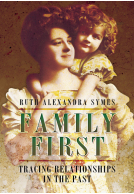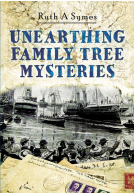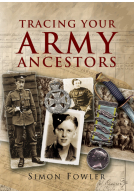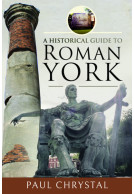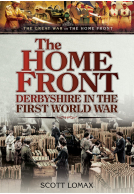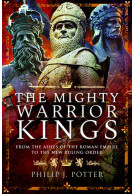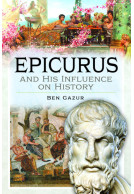Tracing Your Ancestors Through Letters and Personal Writings (Paperback)
A Guide for Family Historians
Imprint: Pen & Sword History
Series: Tracing Your Ancestors
Pages: 270
Illustrations: 75
ISBN: 9781473855434
Published: 6th December 2016
Top Choice
Chosen as the Family Tree magazine February 2017 'top choice' for guides for family historians
(click here for international delivery rates)
Need a currency converter? Check XE.com for live rates
| Other formats available | Price |
|---|---|
| Tracing Your Ancestors Through… eBook (36.4 MB) Add to Basket | £6.99 |
Could your ancestors write their own names or did they mark official documents with a cross? Why did great-grandfather write so cryptically on a postcard home during the First World War? Why did great-grandmother copy all the letters she wrote into letter-books? How unusual was it that great-uncle sat down and wrote a poem, or a memoir?
Researching Family History Through Ancestors' Personal Writings looks at the kinds of (mainly unpublished) writing that could turn up amongst family papers from the Victorian period onwards - a time during which writing became crucial for holding families together and managing their collective affairs.
With industrialisation, improved education, and far more geographical mobility, British people of all classes were writing for new purposes, with new implements, in new styles, using new modes of expression and new methods of communication (e.g. telegrams and postcards). Our ancestors had an itch for scribbling from the most basic marks (initials, signatures and graffiti on objects as varied as trees, rafters and window ledges), through more emotionally-charged kinds of writing such as letters and diaries, to more creative works such as poetry and even fiction.
This book shows family historians how to get the most out of documents written by their ancestors and, therefore, how better to understand the people behind the words.
The author compiles a considerable number of sources of information which can shed light of the lives and character of relatives: diaries, letters, annotated photographs and, if you are fortunate, autobiographies. Copious help is given on where you might find such material other than in your personal collection and how best to interpret it.
Northumberland and Durham FHS Journal - Winter 2022, Volume 47, Number 4
Full of examples and illustrations, the book provides an insight into how to enrich your knowledge and understanding of previous generations.
As featured in: 'Hurricanes and Heatwaved'
Who Do You Think You Are
Ruth A Symes reviews Tracing Your Ancestors in Lunatic Asylums
WDYTYA? Magazine, February 2020
Author features as expert in Q&A feature
WDYTYA? Magazine, April 2019
Author features as expert in Q&A feature
WDYTYA? February 2019
Author article on tracing your pre-Victorian ancestors online as featured in
Family Tree, December 2017
It's an absorbing and well-illustrated read, and will be of interest to you whether you're trying to track down your ancestor's written record, or just want to read about our predecessors' attitude towards the written word.
Your Family History, July 2017
This book is well illustrated and has a comprehensive index and list of book and websites for further study.
Third Age Matters
The enjoyment and satisfaction of writing such an informative book for family historians and having it published professionally must bring just rewards for the hours and years of hard work which the author has put in to it.
As well as presenting a fascinating social history of writing in the 19th and 20th centuries, the author encourages us to think about our ancestors' writing skills, including how they may have learned to write, how their vocabulary developed over the years and who they were writing for, as well as giving tips on how to decipher and understand them in historical context.
Family Tree, February 2017
This is a refreshing and enlightening approach to tracing the lives of those who came before us through the words they wrote; proving that, however apparently inconsequential, you can analyse all sorts of written artefacts left behind by the most ordinary ancestors and perhaps come to better understand them as individuals, not just names on pieces of paper.
The great strength of this book is the suggestions it offers for further research, many of which you won't have thought about before. At the end of each chapter is a list of questions to pose when looking at particular writings for your forebears. For example, why were they created and who were they for? The book is also full of useful tips such as making comparisons of your ancestors' signatures with people of different ages and genders, and with previous and subsequent generations; this many help to ascertain changes in their lives such as illness and an increase in education. Also, if you ever have to clear out an elderly relative's house, never send their books to a charity shop without looking through them first. The volumes might include handwritten annotations that could tell you more about their thoughts, hopes and dreams in their life.
WDYTYA? Magazine, February 2017 - reviewed by Michelle Higgs
The book also highlights an excellent range of online and offline sources to follow up, and it's well illustrated with examples of personal writings; it's an absorbing and thought-provoking read.
About Ruth Alexandra Symes
After a career in academia, education and editing, Ruth A. Symes now writes full-time. Her work, including many articles in the genealogy press and several family history books, brings together family history and social history in ways which aim to inspire the ordinary reader. Ruth is married with a young daughter and lives and works in Manchester. Her blog is at www.searchmyancestry.blogspot.co.uk









